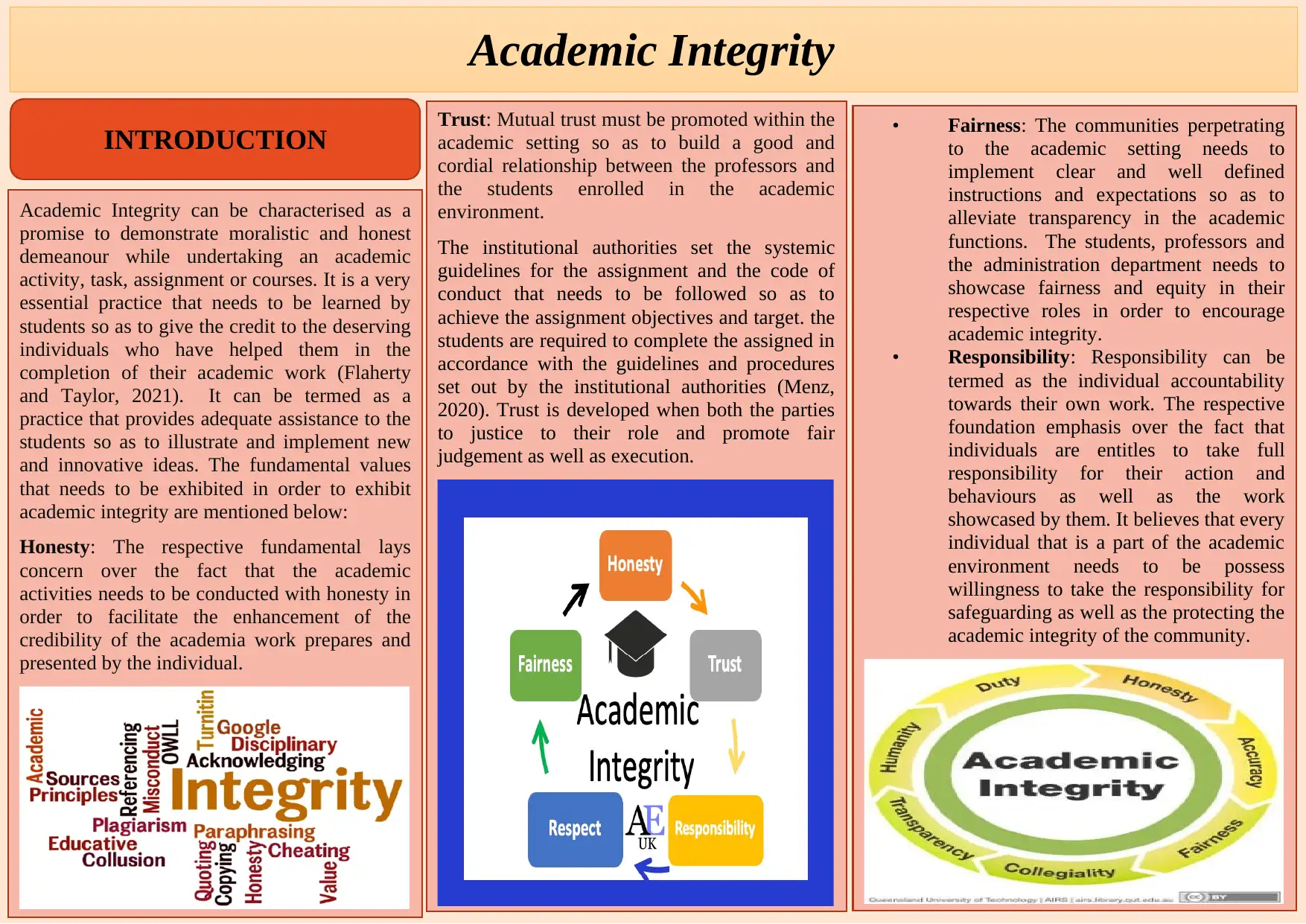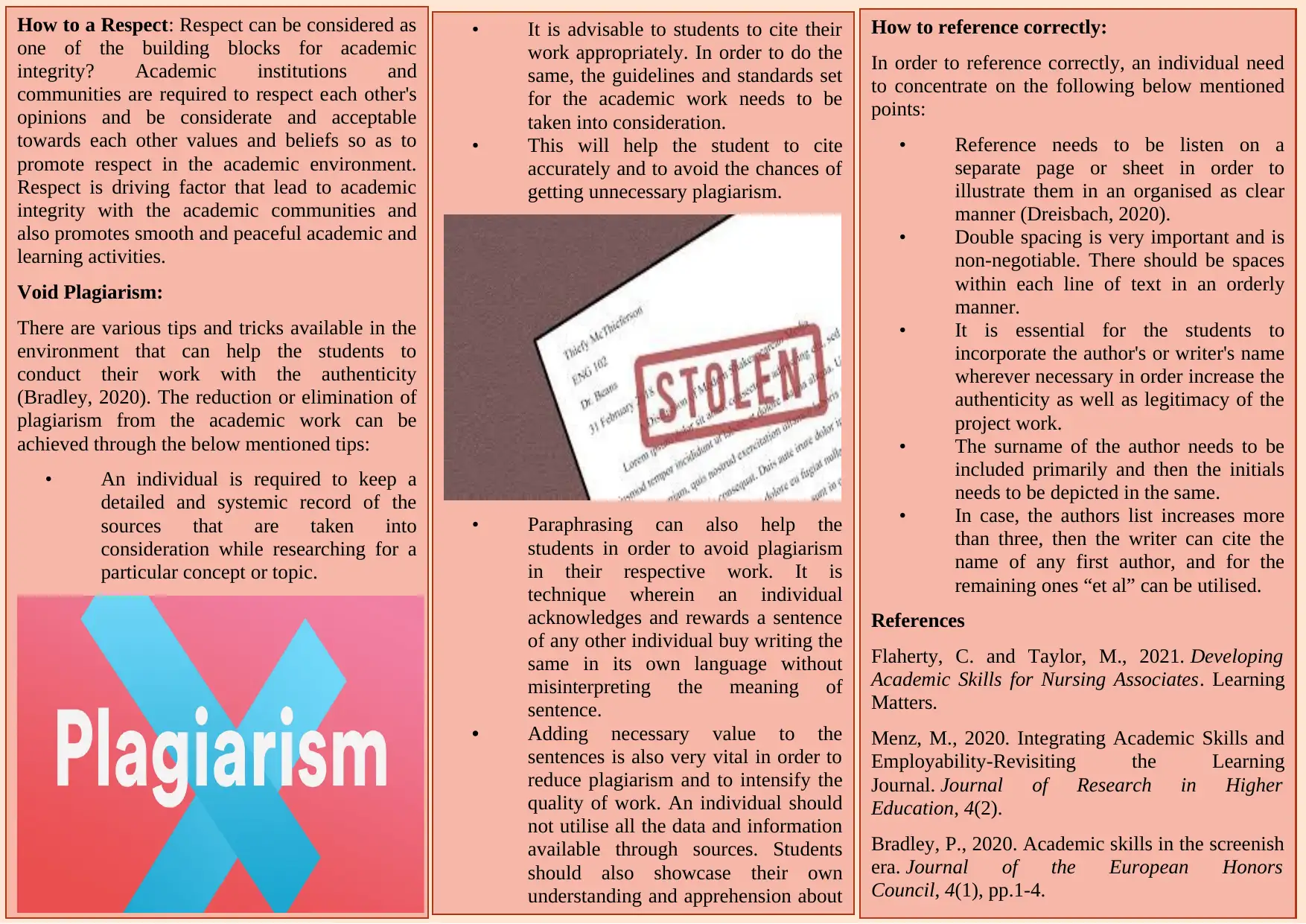Arden University BUS003: Academic Skills Portfolio of Tasks
VerifiedAdded on 2022/12/27
|2
|946
|29
Project
AI Summary
This academic portfolio, created for the BUS003 Developing Academic Skills module at Arden University, addresses the assignment brief's requirements. It begins with an introduction to academic integrity, emphasizing honesty, trust, fairness, responsibility, and respect. The portfolio then delves into practical application, starting with a detailed study timetable incorporating time management techniques for the module's duration, including commitments such as work, family, and leisure. The assignment also includes an explanation of the time management methods used. Furthermore, the portfolio tackles referencing, providing instructions on how to avoid plagiarism through correct citation, and offers tips on how to correctly cite sources, including guidelines on formatting, paraphrasing, and the use of et al. The document includes a reference list in the required AU Harvard format, demonstrating the student's understanding of academic integrity and referencing standards.
1 out of 2








![[object Object]](/_next/static/media/star-bottom.7253800d.svg)